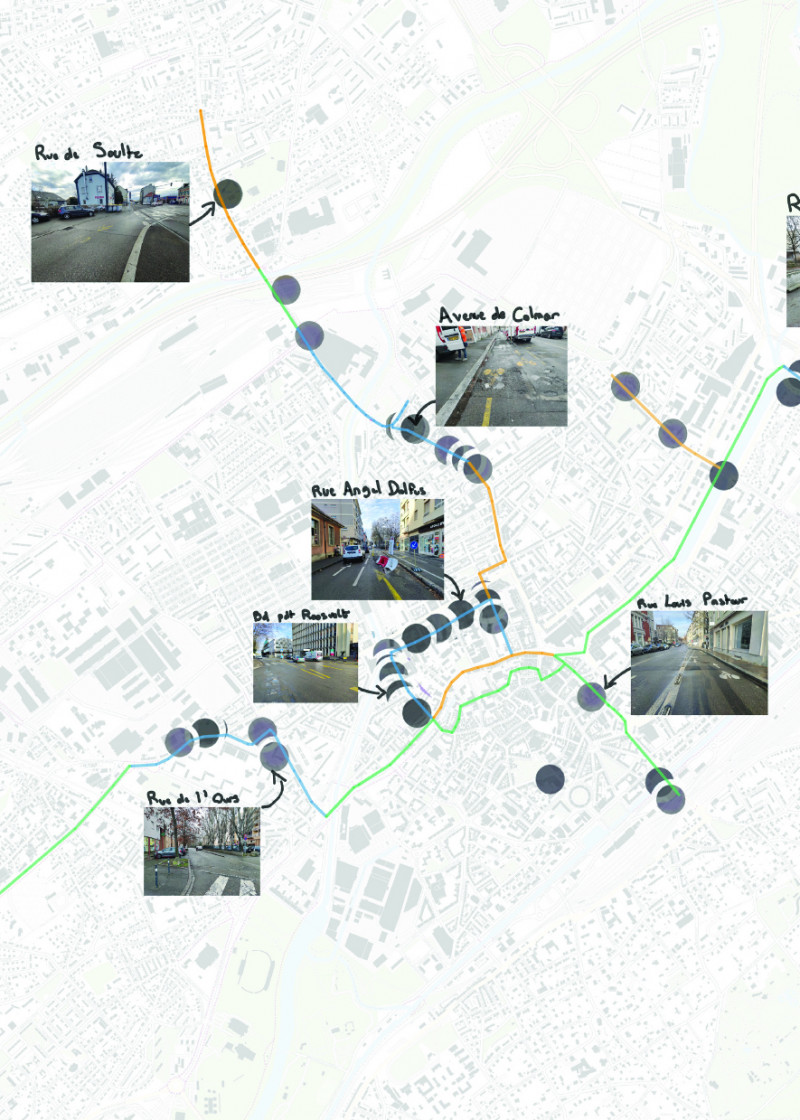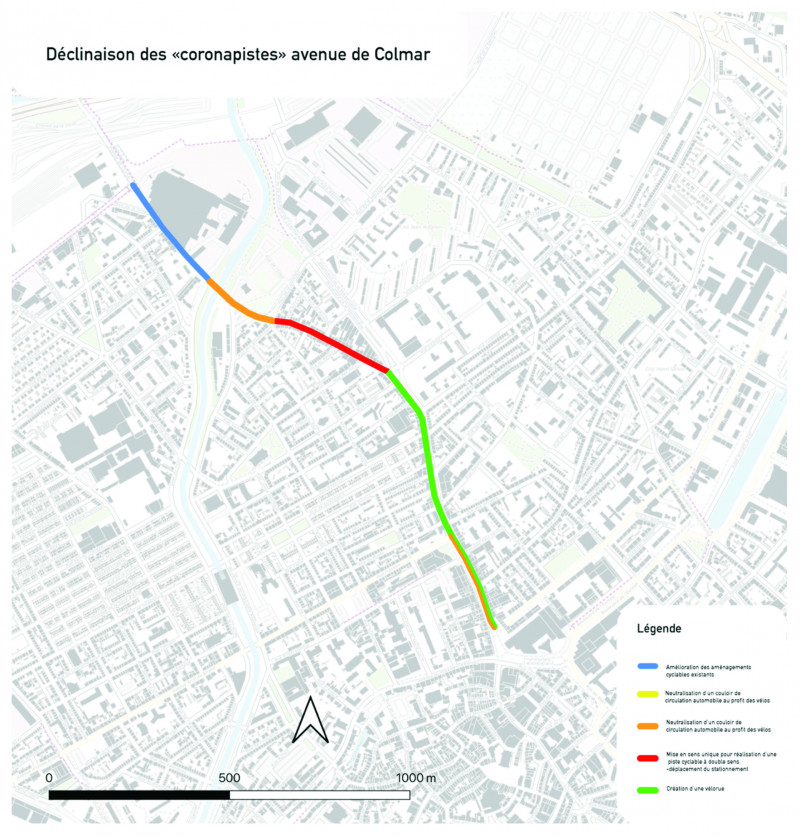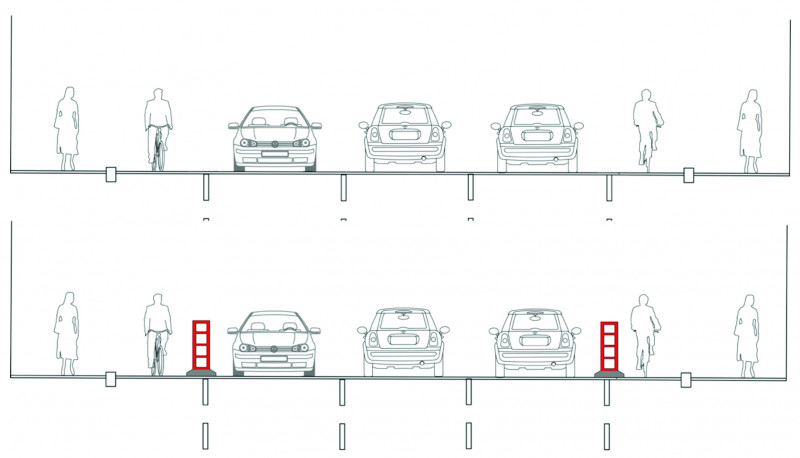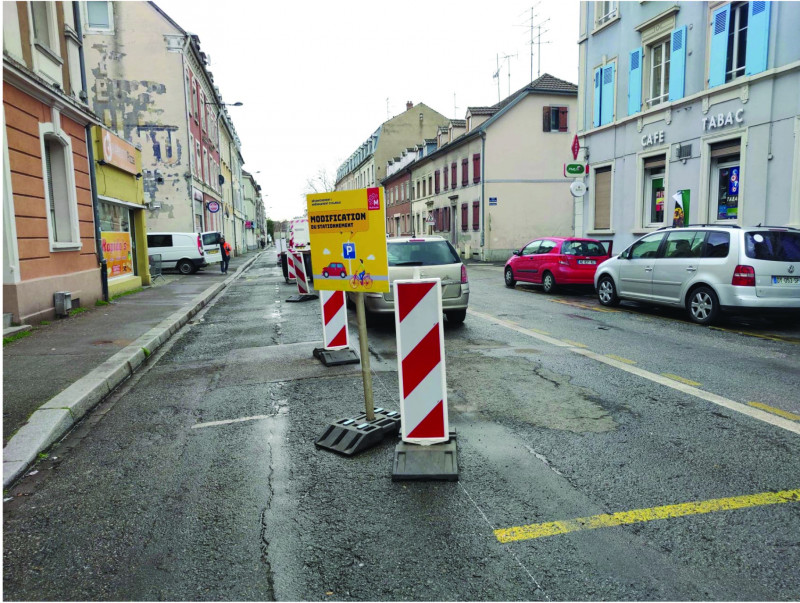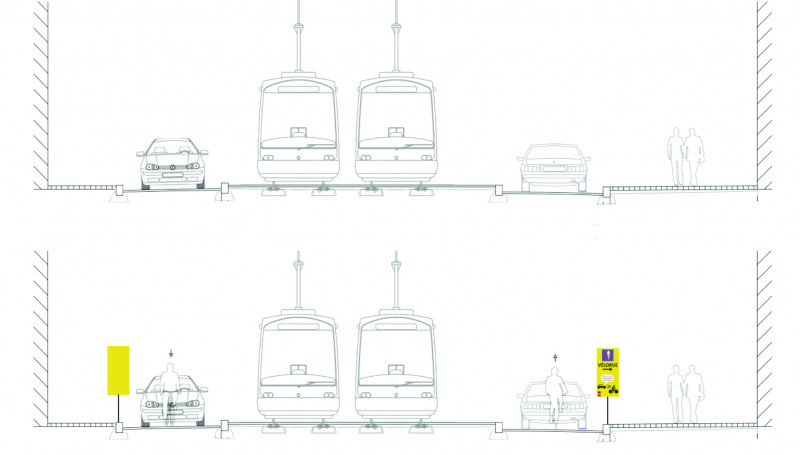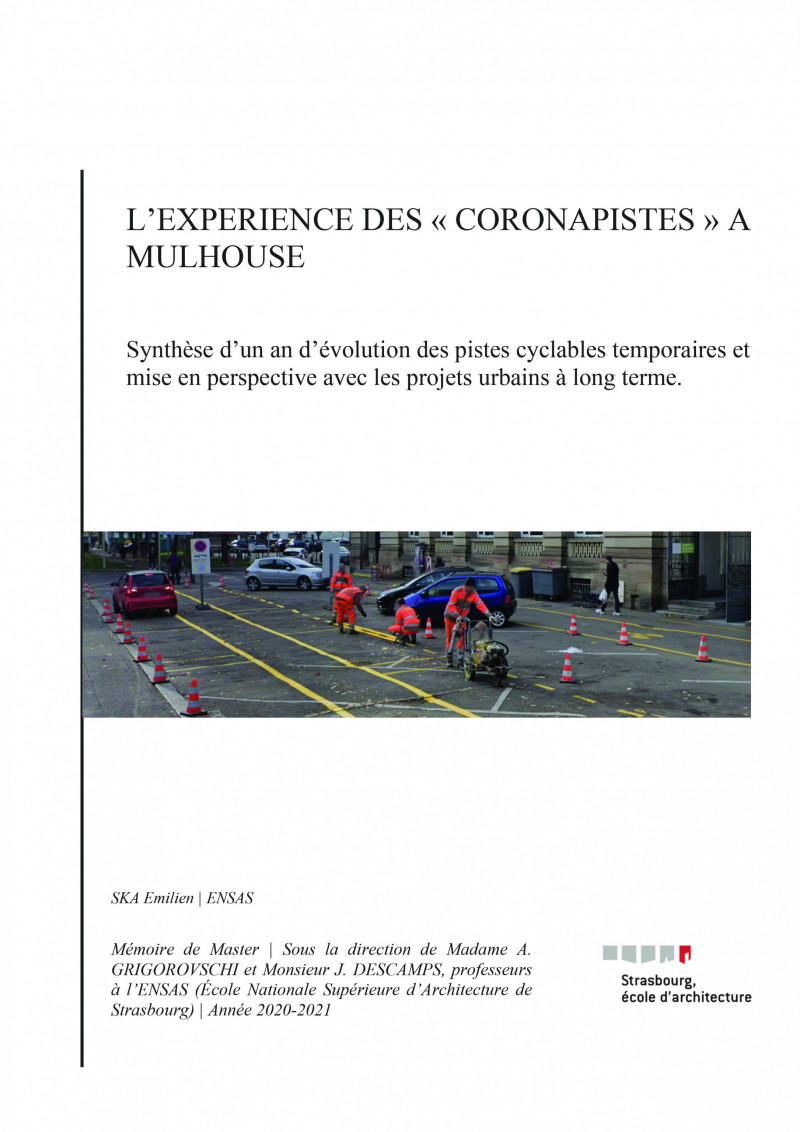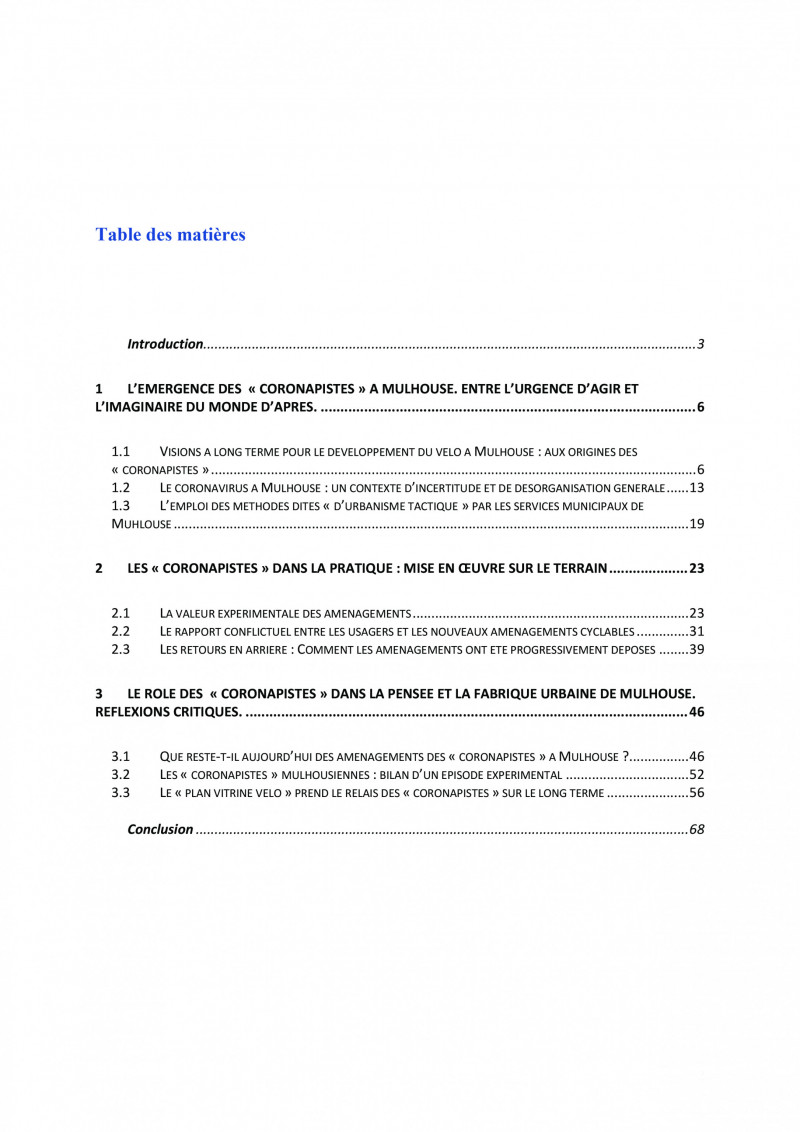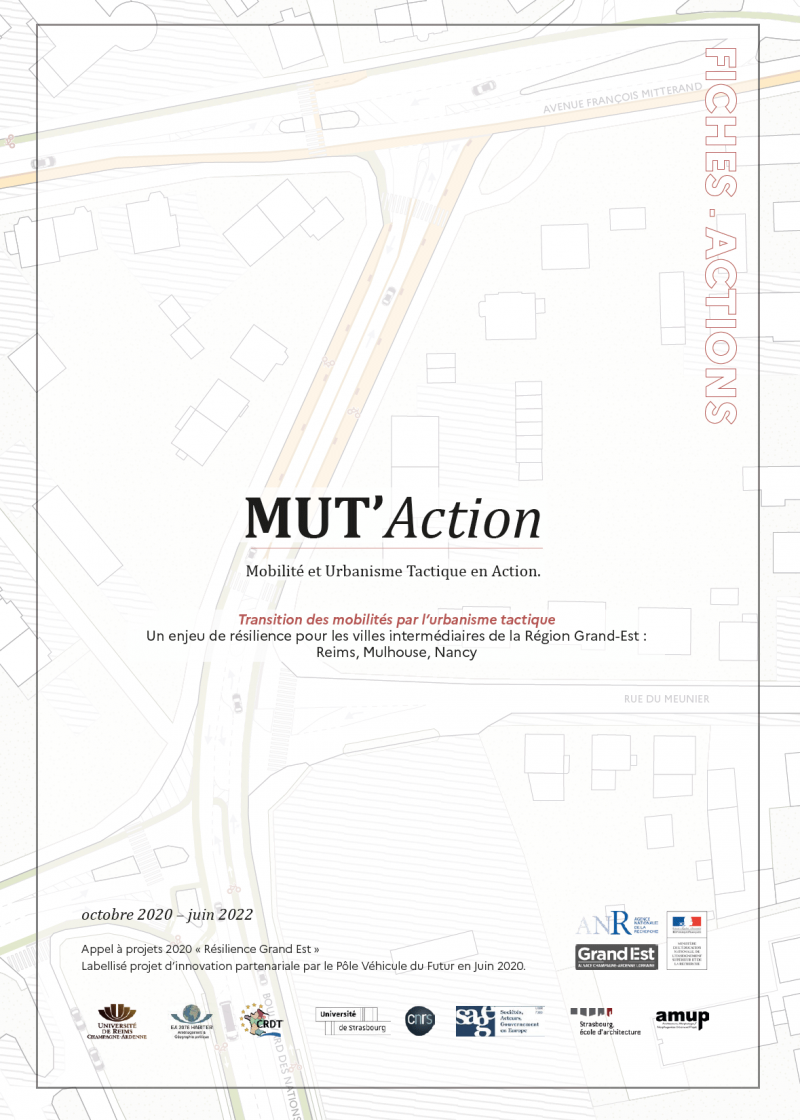The "Corona" bikeways experience in Mulhouse
Before the Coronavirus crisis, the public authorities were already encouraging the development of cycling practices for ecological, environmental and public health reasons. In Mulhouse, the city acquired two tram lines in 2006, then a tram-train in 2010, facilities that play a central role in creating a more peaceful urban setting, an essential prerequisite for the development of cycling. But the covid-19 pandemic in 2020 brings a new dimension of ecological emergency to the development of cycling in the city. It raises questions about the vulnerability of our territories in the face of uncontrolled phenomena that profoundly change our lifestyles and highlight the question of their resilience. Erected as a barrier gesture against the coronavirus by the government, the bicycle is experiencing rapid progress in France and around the world since the first confinement. In this context, the city of Mulhouse has positioned itself in favor of this mode of transport by creating a 15 km network of "Coronapistes", temporary cycle paths which aim to counter a potential massive return to the individual car. Despite their temporary nature, the idea that accompanies these "coronapists" is to be able to perpetuate a maximum of developments after a test phase, because the municipality nourishes the hope of seeing the bicycle impose itself durably in the urban landscape after the crisis. How has this unique experience gone since March 2020? What are the characteristics of the Mulhouse "coronapists"? What about these facilities today? Can we consider the experience of the “coronapists” in Mulhouse as decisive in guiding long-term urban policies?
This dissertation is part of the Mut'Action research project.




